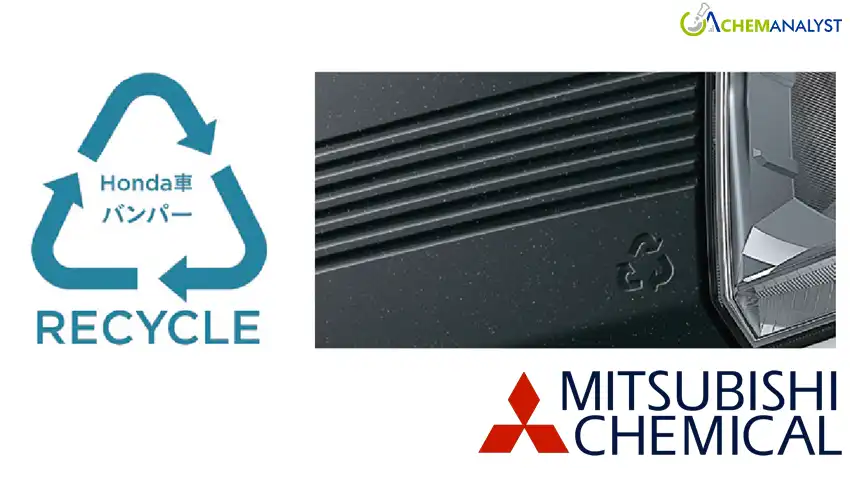Welcome To ChemAnalyst

Mitsubishi Chemical Corporation and Honda Motor Co., Ltd. have jointly developed a new PMMA (acrylic resin) recycled material for the door visors of the upcoming N-ONE e: mini-electric vehicle.
In a groundbreaking move toward a circular economy in the automotive industry, Mitsubishi Chemical Corporation and Honda Motor Co., Ltd. have announced the successful joint development and application of a recycled acrylic resin for the door visors of Honda's new mini-electric vehicle, the N-ONE e:. The vehicle, set for release on September 12, 2025, will be the first in the industry to feature door visors made from this innovative material.
This achievement is a major step forward in sustainable manufacturing, addressing a long-standing challenge in plastic recycling. Acrylic resin, or PMMA, is highly recyclable through a process called thermal decomposition, which converts it back into its raw material, methyl methacrylate (MMA). Despite this potential, recycling acrylic resin from end-of-life vehicles has been notoriously difficult due to quality degradation and the presence of foreign matter. Mitsubishi Chemical, with its partners Honda and Hokkaido Auto Dismantler Corporation, has overcome this hurdle by developing a specialized technique that successfully filters out impurities, ensuring the recycled material maintains the same high quality as virgin acrylic resin.
The collaboration began with demonstration experiments aimed at establishing a practical recycling method. By working together, the companies created a closed-loop system where used acrylic resin is recovered from retired vehicles and chemically recycled into a new material for the N-ONE e: door visors. This process not only reduces the demand for new, petroleum-based plastics but also significantly lowers carbon dioxide (CO2) emissions associated with manufacturing and disposal. The successful implementation of this technology highlights a commitment from both companies to environmental stewardship and resource conservation.
For Mitsubishi Chemical, this development aligns perfectly with its long-term vision to become a "green specialty company" that leverages the power of materials to create a sustainable society. The company has been at the forefront of this effort, having conducted joint research on microwave-based thermal decomposition recycling technology since 2021. The partnership with Honda, a major player in the automotive sector, provides a powerful and visible platform to demonstrate the commercial viability and environmental benefits of this recycling method.
The door visor, while a small component, represents a monumental leap in automotive sustainability. This initiative shows how targeted, collaborative efforts can transform seemingly complex recycling challenges into practical, real-world solutions that benefit both the environment and the consumer.
We use cookies to deliver the best possible experience on our website. To learn more, visit our Privacy Policy. By continuing to use this site or by closing this box, you consent to our use of cookies. More info.
